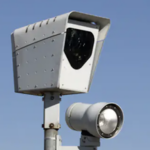Australia Has Started Microchipping People

In 1946, a senior executive at film studio 20th Century Fox famously predicted that television wouldn’t take off. “People will soon get tired of staring into a plywood box every night,” he thought.
Then in the late 1970s, as computers sparking the interest of Bill Gates and the late Steve Jobs, tech geeks were predicting there would be a computer in every home. And look how that turned out.
Fast forward to 2016, and Australia is set to become the first country in the world to microchip humans Yes, really. And while it’s hard to predict the future, NBC news in the US recently predicted all Americans would be microchipped within the next few years.
Well guess what? The technology is already being rolled out here in Australia.
At this stage, a person’s decision to be ‘microchipped’ is completely voluntary, and several who’ve undergone the procedure say they’re excited to be pioneers of a “superhuman” phenomenon which enables them to get into secure buildings and their cars without cards or keys.
And the advantages don’t stop there. The technology has the potential to enable people to turn on lights and log into computers, or pay for things with a wave of a hand.
Sydney woman Shanti Korporaal has had two implants inserted under her skin, and is thrilled by the possibility of a life without passwords, PINs, cards or keys.
“With Opal, you get a unique identification number that could be programmed into the chip… A chip could open your computer, photocopier”, she said.
The microchips, which are the size of a grain of rice, can act like a business card and transfer data to smartphones, as well as hold complex medical data.
How the chips work
The chips are inserted into the flesh just below the skin, between the forefinger and thumb.
The chip is cheap – costing between $80 and $140 depending on the sophistication of the technology – and is done by doctors who charge around $150.
The procedure only takes a few minutes – involving a local anesthetic, insertion through a long needle and then a quick ultrasound to ensure the chip is in place.
It might be quick and pretty straightforward, but it’s not painless, and people need to be careful with their hands for a couple of weeks while the chip settles into place. Those who’ve undergone the procedure say the chip is almost impossible to detect thereafter, leaving only a small mark like a freckle.
Ethical concerns
The chips work by using Radio Frequency Identification (RIFD) technology – the same signals that power our motorway e-toll system and the ‘pay wave’ cards we love to use at the supermarket.
The possible applications are endless – and RIFD is also widely used in transport, manufacturing, and retail industries for tracking, tracing and stocktaking.
While it’s early days, the ethical, social, practical, security and even criminal law issues over what data people should have chipped, and how that data needs to be considered in terms of the law, are still being debated.
American Amal Graafstra , a long-term champion of the technology, had his implants inserted in 2005 and claims, “…It’s given me the ability to communicate with machines. It’s literally integrated into who I am.”
Mr Graafstra spends much of his time advocating the rights of people who have the implants. “I want to make sure it’s treated as part of the body, like an organ,” he says.
One firm in Sweden has allowed employees to choose chips over a work pass, allowing them to access building as well enabling the use of photocopiers, and to pay for lunch at the canteen.
The company says it was keen to understand this technology before big corporates or government make chips compulsory, after which there may be a need to play ‘catch up’ on how it works and what its implications might be.
Hannes Sjoblad from Swedish bio-hacking group BioNyfiken, says by using the technology now, we can better understand and assess its potential.
On the other hand, the chips raise concerns about privacy and control by government and corporations. The ability to know precisely where we are at any given time and what we do is an information goldmine for companies, and has the potential to lead to a society where our every move can be monitored and controlled.







